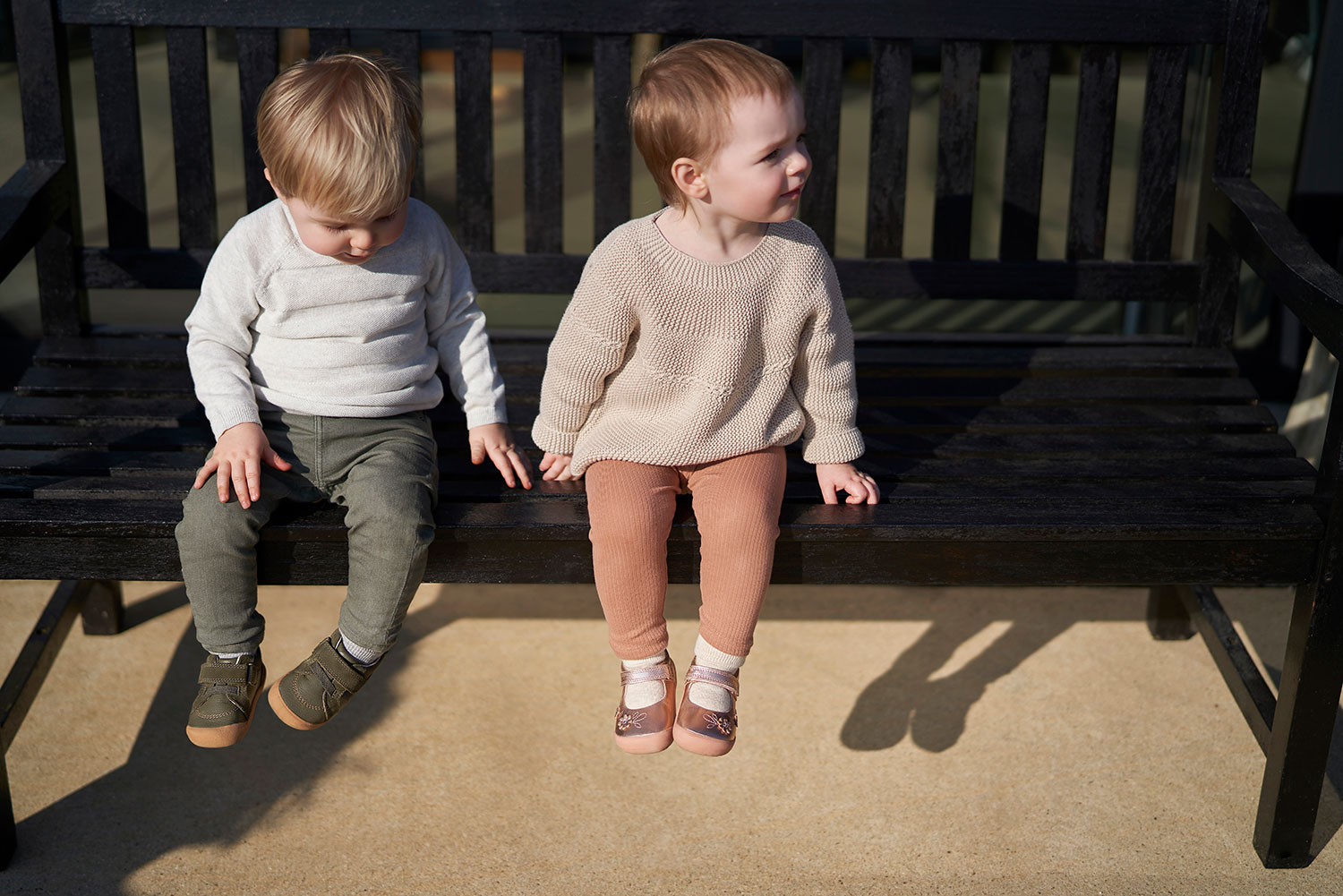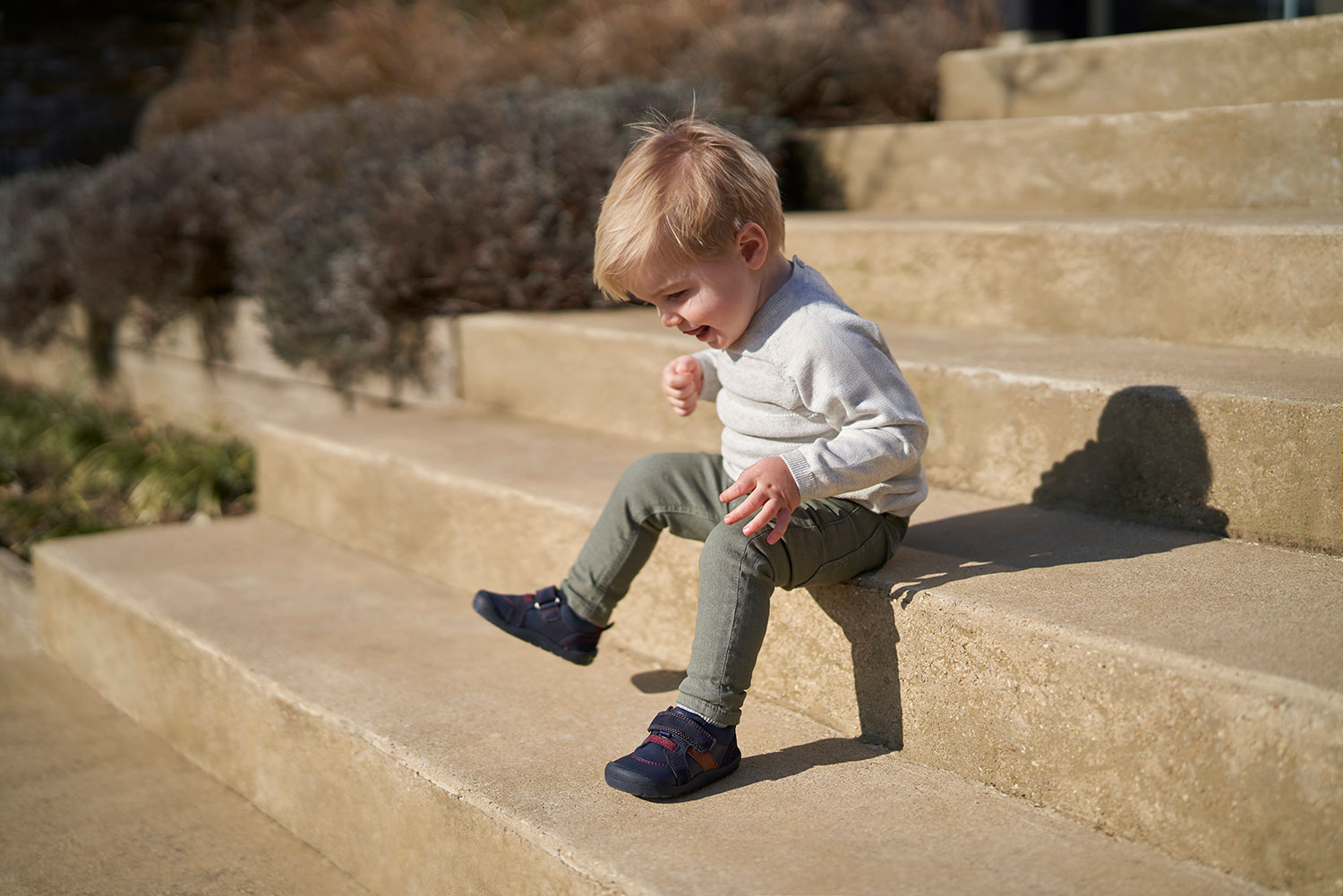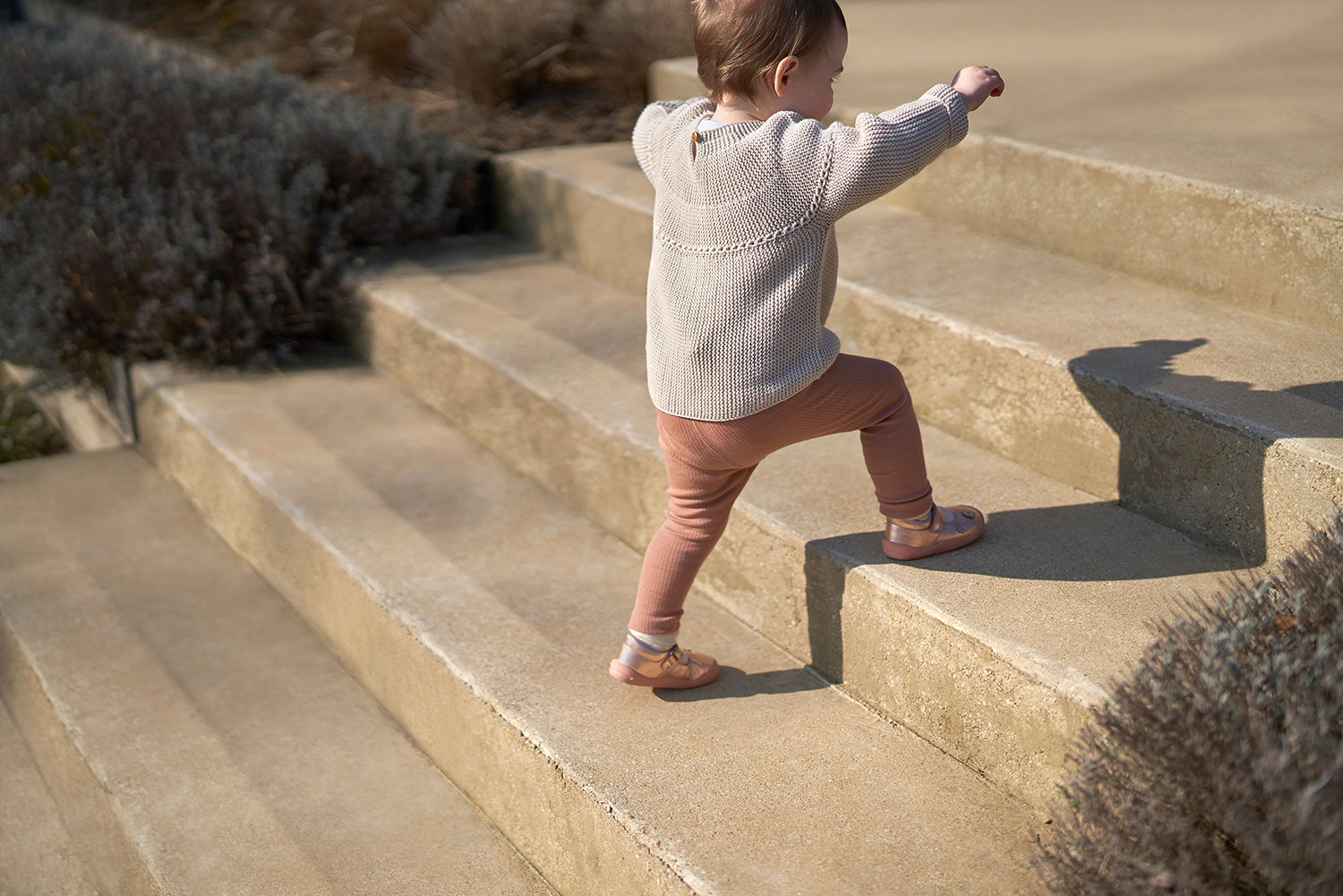Helping your child develop – Toddlers
The next part of our child development blogs looks at Toddlers. Here you’ll find information on making the right foot care choices for your child and provide advice on engaging the whole body through related activities suited for their life stage.

When toddlers are taking their wobbly first steps towards walking outdoors, their feet need protection. They are now ready for their first walking shoes with considered support for this development stage. Children develop coordination and control at different times and your child's first steps may take place at any time between nine months and 15 months of age. You may want shoes for different occasions, but remember to get these correctly fitted too. Their feet are growing quickly, so don't simply buy the same size as the last pair. At this stage your child needs to have as much contact with the ground as they can to augment sensory input allowing them to develop their critical connections between their receptors and the brain to form coordination skills and sensorimotor activity. During this stage, your child is busy discovering relationships between their bodies and the environment.

Here are some activities to help your child develop during their first steps:
- Walking on different surfaces is great for stimulation and stability development.
- Climbing is also great for coordination, independence and muscle development - let them exercise by climbing onto the sofa or over cushions.
- Push-pull toys are good practice and encourage your child to start moving.
- Once up on two feet, its also important to help them land safely so they build confidence and develop the mechanics of getting up and down and encourage further exploration of their surroundings.
You could try these activities to help your child develop once toddling:
- Parent and child swimming classes are great for unweighted muscular development and coordination.
- Play with sponge balls: throwing, catching and kicking are good exercises for hand-eye and foot-eye co-ordination.
- Dance with your child, using different energy levels and movements.
- Visit your local park or playground - great for large-muscle activity like climbing and balancing, and for observing, learning from others and trying new things.

First steps shoes:
Start-Rite have developed a considered range of first walking shoes allowing natural movement with the right level of support and protection for your toddlers uniquely soft and lightly structured feet. This allows them to develop naturally, gain the right level of feedback from the terrain beneath their feet and protect them throughout all their exploring.
Start-Rite first walking shoes have the following features:
- Whole and half sizes in up to four width fittings E, F, G, H to ensure the best possible fit.
- Secure fasteners so that your toddler does not have to curl their toes to keep their shoes on, properly allowing their developing bone architecture to form naturally.
- Rip-tape fasteners which are quick and easy to secure to make life easier for busy parents and allow for plenty of adjustability.
- High quality, softest leather uppers so that your toddler doesn’t even know they have them on but has maximum durability.
- Breathable linings for increased comfort, allowing perspiration to escape through the surface of the shoe.
- Lightweight and flexible soles that have been designed to flex as the foot flexes at the metatarsal joints so your toddlers foot can perform naturally as an important part of the locomotor system.
- Outsoles are designed to be supple, flexible and allow the foot to form naturally to help with stability at this early stage in your toddler’s gait development.
- Built in growing room around the toes, to allow for growth of those developing muscles, ligaments and bones in your toddler’s feet.
To ensure your toddler has the correct fitting shoes we recommend measuring their feet every 6-8 weeks.
To read our general tips on foot health click HERE


